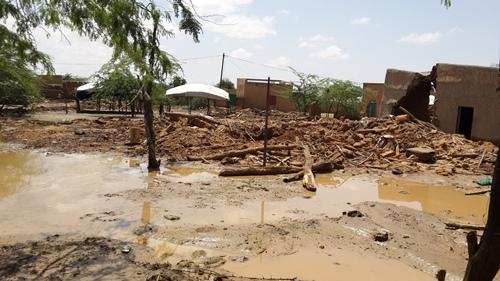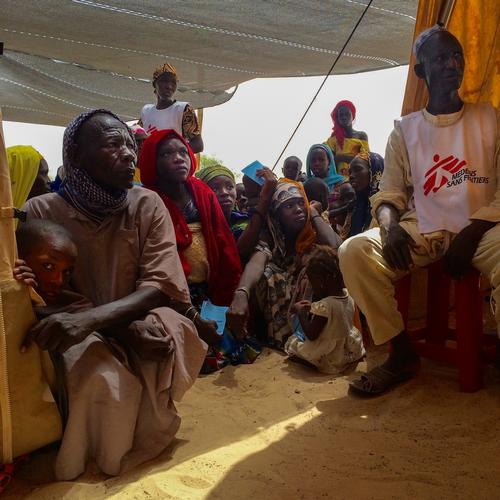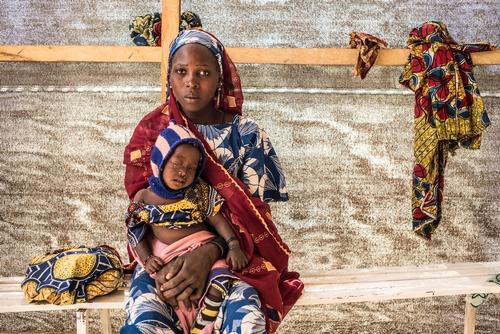In early August, heavy rains in the Tahoua district of Niger caused severe flooding, killing one person, washing away over 500 houses, and leaving 1,940 households in a dire situation. Many homeless families have been left sheltering in public buildings, some in need of medical attention and most worried about their future.

While the local authorities have responded, the sheer scale of the floods has left over 11,000 people vulnerable and some humanitarian organisations overwhelmed. The risks of malnutrition and communicable diseases such as malaria, diarrhoea, and respiratory ailments are real and need to be addressed.
MSF was already operating in the area and, when called upon by the authorities to respond, rapidly deployed an assessment mission to evaluate the situation and determine how it could support the wider appeal. MSF decided that it had the capacity and was best placed to intervene in the town of Abalack and the village of Kiara.
“We see that the families in this area, who are already have very little, have now lost everything. Despite the presence of government health facilities, many parents do not have the money for treatment for such illnesses as respiratory infections, diarrhoea and skin diseases,” said Adolphe Masudi, MSF project manager for this intervention.
“MSF has put a mobile clinic into the field where treatment is free and we can conduct hygiene promotion activities. We are also providing mental health support for a widely traumatised population and strengthening our surveillance of outbreaks. Five hundred non-food item (NFI) kits, which include domestic utensils, blankets, mosquito nets and hygiene supplies, were also handed out to families that lost their homes.”

In the village of Kiara most of the destitute families are sheltering in the three classrooms of the community school. Given the squalid conditions, one of MSF’s first tasks was to dig basic, working latrines to stop the spread of waterborne diseases. But with over two hundred families in need, this is only a stopgap measure.
If the sanitary conditions do not improve and decomposing animal carcasses killed in the floods are not managed, disease could spread quickly. This is a crisis the community will find hard to contain under the current circumstances.
MSF also distributed 220 NFI kits to families in Kiara. This comes after the local government distributed some food rations and cooking oil as an emergency provision as well as small sum of money equivalent to 2,000 Central African Francs (a little over three euros).
Those who have lost livestock or harvests do not know how they will get back on their feet. In this part of the country this is the only way of saving and ensuring that one’s family has access to food.
MSF has been working in Niger since 1985. The main objective of its activities is to improve access to healthcare for pregnant women and children under five years of age through preventive action and early treatment that focus mainly on fighting malnutrition and malaria. MSF teams are currently working in the Diffa, Zinder, Maradi and Tahoua regions.






